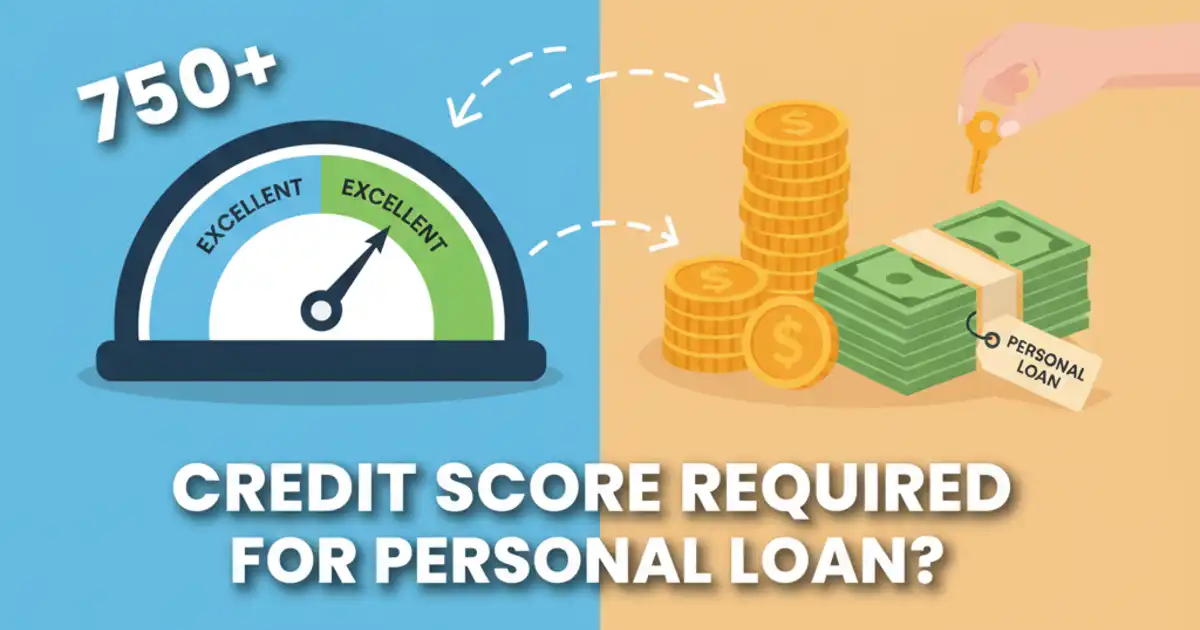Applying for a personal loan is simple these days, but one thing that can make or break your approval is your credit score. Lenders carefully review your credit history before deciding whether to approve your loan and at what interest rate. If you’re wondering what credit score is required for a personal loan and how you can improve it, this guide will walk you through everything in plain, easy-to-understand language.
What Is a Credit Score?
A credit score is a three-digit number that reflects your creditworthiness — in other words, how reliable you are in repaying borrowed money. It’s calculated based on your past loan repayments, credit card usage, outstanding debts, and overall credit behavior. In India, credit scores are provided by agencies like CIBIL, Experian, Equifax, and CRIF High Mark.
Minimum Credit Score Required for Personal Loan
Most banks and NBFCs prefer a credit score of at least 750 or above for quick approval and better loan terms. However, this doesn’t mean you can’t get a loan with a lower score — it just means your options may be limited, and the interest rate could be slightly higher.
Here’s how lenders generally view credit scores:
- 750 – 900: Excellent credit score. You’ll likely get instant approval and the best interest rates.
- 700 – 749: Good credit score. You can still get a loan, but the rate may be a bit higher.
- 650 – 699: Fair credit score. Some lenders might approve your loan, but the process may involve extra verification.
- Below 650: Low credit score. Approval chances are low unless you apply with a co-applicant or offer additional documents.
Why Does Your Credit Score Matter So Much?
Lenders use your credit score to assess the risk of lending you money. A high score means you have a good repayment history, which gives them confidence in your ability to repay. A low score, on the other hand, signals higher risk — which might lead to rejection or higher interest rates.
In short, your credit score affects three main things:
- Whether your loan gets approved
- The interest rate you’ll be charged
- The amount you can borrow
Factors That Affect Your Credit Score
- Payment History: Missing loan or credit card payments can lower your score.
- Credit Utilization: Using too much of your available credit limit can hurt your score. Try to keep usage below 30%.
- Length of Credit History: Older credit accounts help build a stronger score.
- Credit Mix: Having a good balance of secured (like car loans) and unsecured loans (like credit cards) improves your score.
- New Credit Enquiries: Too many loan or card applications in a short time can negatively impact your score.
How to Improve Your Credit Score Before Applying
1. Pay Your EMIs and Bills on Time
Late payments are one of the biggest reasons for a low credit score. Always pay your credit card bills and EMIs before the due date.
2. Reduce Your Credit Card Balances
If you’re using more than 30% of your total credit limit, it can signal financial stress to lenders. Try to pay off outstanding balances regularly.
3. Avoid Multiple Loan Applications
Each loan or credit card application triggers a hard enquiry on your credit report. Too many enquiries in a short time can reduce your score.
4. Check Your Credit Report for Errors
Sometimes, your credit score drops because of incorrect information. Visit the official website of credit bureaus like CIBIL or Experian to review and correct any mistakes.
5. Keep Old Credit Accounts Active
Don’t close old credit cards or accounts with a good payment history — they help increase the average age of your credit history, boosting your score.
Can You Get a Personal Loan with a Low Credit Score?
Yes, it’s possible — but it may come with certain conditions. Some lenders offer personal loans for people with low credit scores, especially if you have a steady income or apply with a guarantor. However, the interest rate will likely be higher, and the approved amount may be smaller.
Alternatively, you can consider taking a secured loan against your fixed deposit, gold, or mutual funds, as these require less credit evaluation.
Tips to Maintain a Healthy Credit Score
- Pay every bill and EMI before the deadline.
- Keep your credit card usage low.
- Check your credit score regularly and monitor changes.
- Don’t apply for multiple loans at once.
- Maintain a balanced mix of different types of credit.
Final Thoughts
Knowing the credit score required for a personal loan helps you plan better and improve your chances of quick approval. While most lenders prefer a score above 750, you can still qualify with a lower score by showing stable income and good repayment discipline. Remember — your credit score isn’t permanent; with responsible financial habits, you can always raise it and secure better loan offers in the future.
Disclaimer: The information in this article is for general awareness only. Loan eligibility and approval terms vary by lender. Always check the exact requirements with your bank or financial institution before applying.

